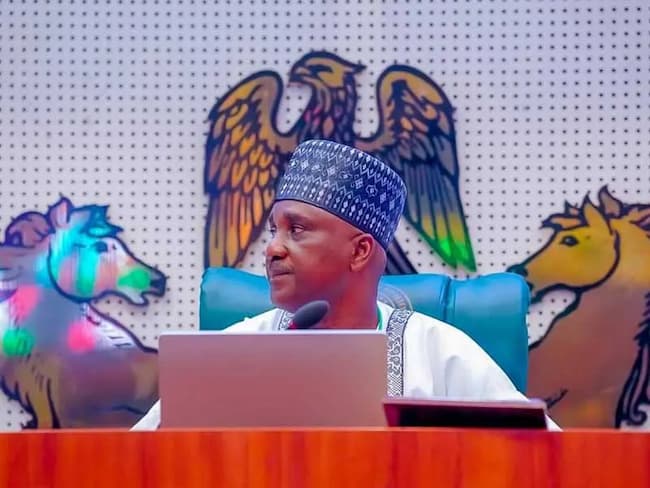Speaker of the House of Representatives Tajudeen Abbas has stated that the lower legislative chamber will modify the constitution to “possibly” boost the number of women in parliament.
On Wednesday, Abbas appeared at the National Institute for Legislative and Democratic Studies (NILDS) international conference on women in government in Abuja.
During the deliberation of constitutional amendment measures in March 2022, the Ninth National Assembly rejected all five gender bills.
The bill seeking an additional 111 seats for women, as well as laws on 35% affirmative action, were both rejected by the national assembly at the time.
Speaking about the system’s gender bias, Abbas lamented the low participation of women in politics and governance, emphasizing that measures will be submitted to bring more women on board.
“Let me assure Nigerians, and particularly women, that the 10th house of representatives will do everything possible within the legislative powers of the house to ensure women’s proper representation,” Abbas said.
“I understand the frustration of women following the rejection of the gender bill in the 9th house of representatives. That bill failed to pass because of the challenges of finding modalities for its success.
“But the 10th house will be revisiting the bill as part of our legislative agenda, and we believe that working together with the women and stakeholders, we should be able to have a law that will benefit the women and all Nigerians and improve governance in Nigeria.
“What this means is that men must lead the drive for women’s inclusion in governance, after all, it is men who shut the door. They have to open it and allow the women to enter.
“This is the import of the growing awareness across the globe of the need for men to lead the charge for the expansion of the governance, political and development space for the greater accommodation of women.
“On our part as members of the legislature, the 10th house of representatives set up a legislative agenda committee, which has captured the issue of women prominently.
“The house will be looking forward to taking a position on the review of the constitution and the electoral laws, with the possibility of increasing the number of seats in the legislature for women in subsequent elections.
“The legislature will work with the leaders of political parties to find a model, looking at other countries with high women representation, that will best suit the Nigerian political culture and ensure that women are properly represented in the legislature and other arms of government.”
Abbas said the country’s “lagging progress in political inclusion” for women is not comforting, explaining that many countries around the world have made significant strides.
“It is even more embarrassing considering that other African societies, facing similar challenges and traditional practices, have managed to move ahead,” he said.
Gender equality, particularly political inclusion of women, is a key problem worldwide, according to the speaker, and Nigeria should not be an exception.













